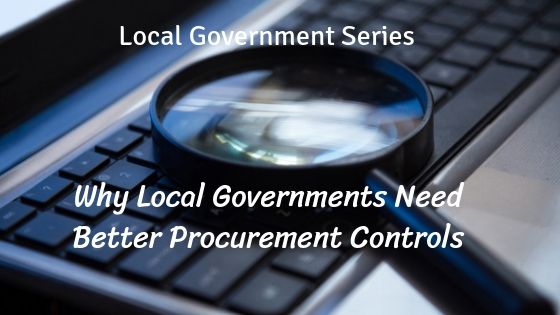In our second article in the Local Government Procurement series, we explore why local governments need better procurement oversight and controls.
Are weak controls preventing local governments from maximising value for money through procurement? Yes, according to a recent audit of eight local councils.
The audit found that ineffective and inconsistent procurement policies and poor oversight and documentation are holding back Western Australian councils’ procurement controls.
Here’s the thing: the procurement practices were found to broadly meet regulatory requirements under the relevant legislation.
So, what’s the problem?
Procurement professionals and staff are not always following practices properly, and some practices still don’t adequately address procurement risks.
Here’s why local government need better oversight and controls:
1) To protect from overpayments and underpayments
Lack of oversight and control over approvals and cross-checking invoices means that councils could be paying for goods and services that are never received.
The audit found that 36 invoices across eight councils couldn’t be verified against quotes, purchase orders or contracts. What’s more, some of these invoices showed that the councils had been overcharged and undercharged for goods and services.
2) To protect against corruption
Without clear records, there’s an increased risk of inappropriate payments and corruption.
There were 13 instances where purchase orders were raised after invoices were received, which defeats the object of a purchase order. After all, purchase orders are designed to act as an internal approval and control mechanism to go ahead with the purchase. By raising the purchase order after the invoice is received, the council cannot determine who approved the initial request for the goods or services, or whether they had authority to do so.
Learn more about anti-bribery and corruption legislation.
3) To ensure value for money.
Transparency is essential to ensure value for money (VfM) in procurement – especially for councils.
Consider the fact that Western Australian councils manage more than $40 billion in community assets and spend $4 billion annually on community services and infrastructure.
Ensuring value for money is a vital element of local government procurement practices.
The NSW Government defines value for money as “the difference between the total benefit derived from a good or a service against its total cost, when assessed over the period the goods or services are to be used.”
In other words, it means striking the balance between the lifetime cost of the purchase and the quality or performance of that product or service.
But without transparency and proper documentation, it’s difficult to measure value for money at any stage of the lifecycle.
Learn more
Transparency in local government procurement, or any public procurement, is critical. It immediately affects public opinion and trust, not to mention it prevents corruption and inappropriate spending. In addition, better oversight and control helps local government maximise value for money.
Missed part one of our Local Government Procurement series? Read about the Problem with Conflict of Interest.
Find resources on good record management for councils on the Victoria IBAC website and in the WA Auditor General’s guide.






